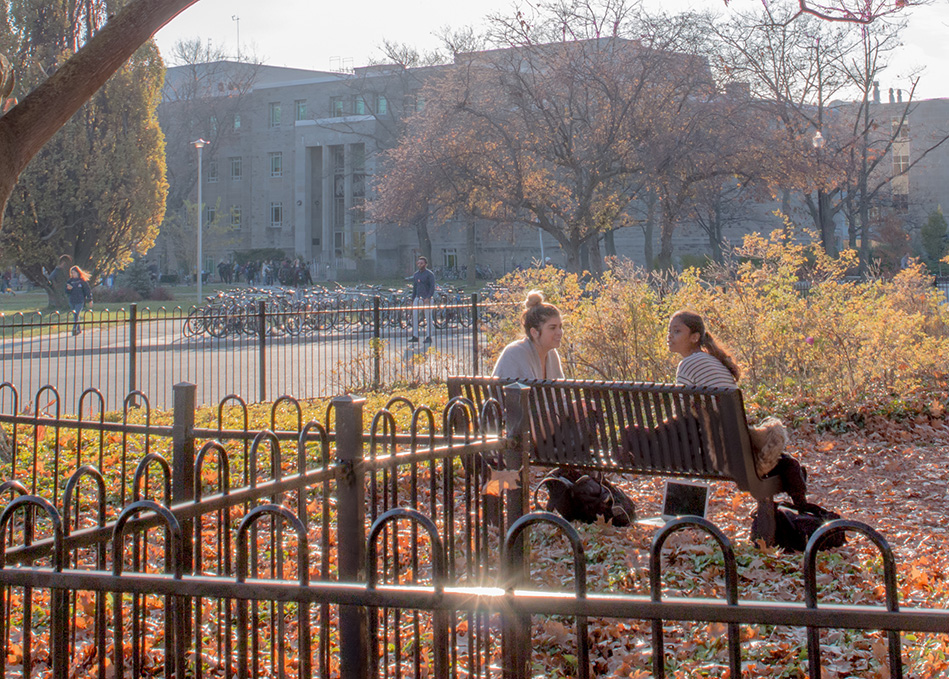Progress report: McMaster’s Mental Health and Well-being strategy

The University is reporting significant progress as it continues to advance its Student Mental Health and Well-being Strategy.
In an update to the Board of Governors, President Patrick Deane reported that since the Strategy’s 2015 introduction, hundreds of students and staff have received specialized mental health training, more front-line mental health professionals have been hired in the Student Wellness Centre and an improved student accommodation policy is in place.
“Since the launch of the Strategy, significant progress has been made on all fronts,” President Deane said. “We recognize, of course, there is still much more to be done.”
As part of the update to the board, Dean of Students Sean Van Koughnett, who is leading the implementation of the Strategy, provided a detailed report indicating progress made on priority areas:
- Nearly 400 students and frontline staff have received specialized mental health training including safeTalk training and Mental Health First Aid. Human Resources Services is now equipped to deliver mental health first aid training across the campus.
- More front-line mental health professionals have been hired in the Student Wellness Centre, funded by graduate students who voted to increase ancillary fees and by provincial investments. The Student Wellness Centre’s team of highly dedicated physicians, nurses, counsellors and staff provided care for over 45,000 student visits last year.
- A new co-ordinated proactive approach has been implemented to provide service and care for students in distress. The University created the Student Support and Case Management office to ensure a coordinated and consistent approach to manage highly complex cases involving mental health. The office brings together a number of University partners including Student Wellness Centre, Student Accessibility Services, Housing, Security and academic units and external healthcare providers.
- A new and improved “Academic Accommodation of Students with Disabilities” policy was approved in April, 2017. It addresses accommodations for students with mental health disabilities, temporary disabilities, retroactive accommodations and accommodations for students in experiential learning environments.
- Establishing a research program into health policy that focuses on emerging mental health issues for young adults. McMaster researcher and psychiatrist Catharine Munn was awarded a two-year $800,000 Mental Health Innovation Fund grant to develop McMaster’s “Arrive and Thrive” program with programs to increase resilience and to assess and address the needs of students struggling with substance abuse.
“Strengthening our support for student mental health and well-being is an ongoing effort,” Deane says. “Partners across campus are working together and will continue to reach out to healthcare providers and others in the community to meet the needs of our students.”
The development of McMaster’s strategy was co-led by Allison Drew-Hassling and Munn. Continuing and building on this work remains a priority for McMaster.
- A review is planned to ensure Student Accessibility Services is properly positioned to respond to the escalating needs of students with mental health disabilities.
- McMaster is building a new, larger and more visible Student Wellness Centre in the Peter George Centre for Living and Learning, which will open in Fall 2019.
- The University has secured an e-Campus Ontario grant to develop and assess the efficacy of digital tools, designed to educate and support instructors in dealing with students with mental health concerns.
McMaster has joined other universities advocating for an integrated province-wide strategy for supporting student mental health and well-being.
The University is calling for a “whole community” approach with clearly defined roles and responsibilities of government ministries, post secondary institutions, students and healthcare providers. The provincial strategy should prioritize prevention and harm reduction and ensure open access to mental health services for all students in all regions of the province and country.

